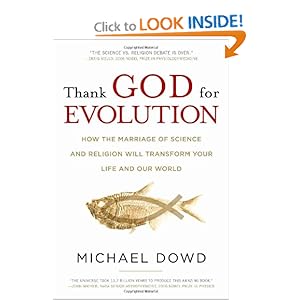Giberson, Collins: We avoid using the “E-word” (evolution)
That’s by design, as chance would have it. Giberson and Collins tell us in The Language of Science and Faith (IVP 2011, pp. 19-20): The BioLogos idea is not radically new, but the novelty of the word gives us a chance to talk about something that has long been disturbing to Christians without having to be constantly reminded of a long negative conversation. Most importantly it gives us a chance to talk about evolution. [ … ] Theistic evolution is the belief that God created life using natural processes, working within the natural order, in harmony with its laws. So, why don’t we simply use the term evolution to describe our view? We don’t use the term, at least not Read More ›

 If so, maybe you are a Christian Darwinist and didn’t know it.
If so, maybe you are a Christian Darwinist and didn’t know it.